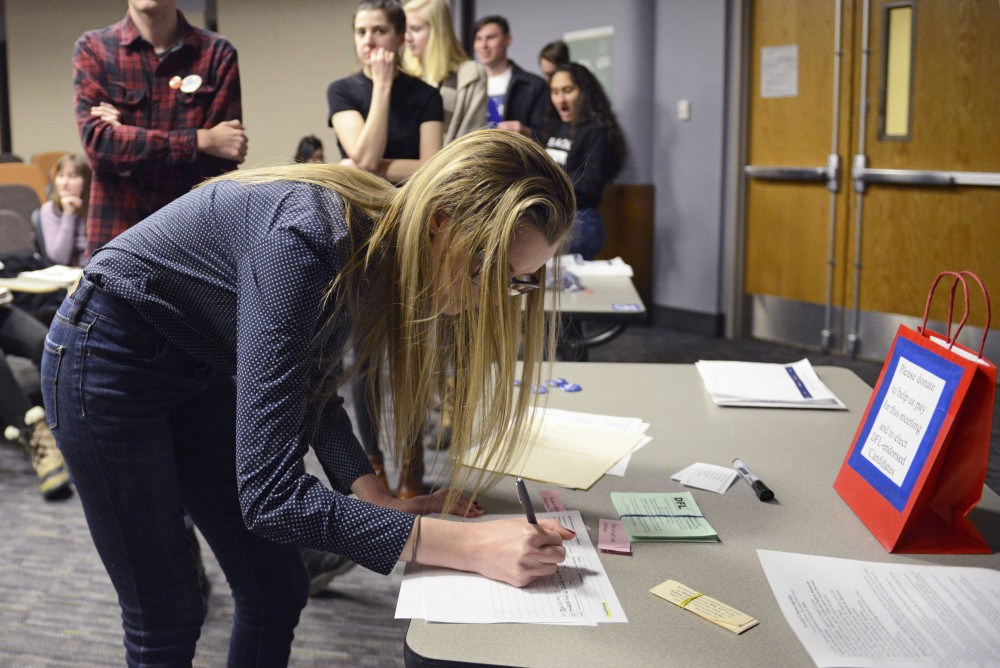University of Minnesota students living in Ward 2, Precinct 4 gathered in Murphy Hall on Tuesday night to caucus for local DFL candidates.
The caucus location was one of many on campus Tuesday night, including Mondale Hall, the University’s Armory, Willey Hall and Blegen Hall, among others.
Around 20 students at Murphy voted in a gubernatorial straw poll, elected delegates for the party’s convention and submitted resolutions to be considered by DFL officials. But a lack of information about the process spurred confusion among some students.
“I’ve [caucused] before and it’s a really cool experience,” said Kate Kuehl, a University junior who volunteered as a Senate District Convention Delegate.

Kuehl and 10 other students were elected as delegates during the caucus, and will be tasked with nominating candidates for the state convention. But the amount of delegates elected fell short of the 21 required by the DFL for this particular precinct.
“I was researching a lot on the delegates but they didn’t make the information readily available,” Kuehl said.
Kuehl also said they came across inaccurate information about the caucus start times.
Other students during the caucus questioned the duties of the very positions they were being elected to. Some politically-active students have been working to make the caucus process more inviting.
“I feel like it’s important for students to get out and caucus and change the culture of caucus in general,” said Sonia Neculescu, campaign manager for Rep. Ilhan Omar, DFL-Minneapolis. “In the past, the process… has been exclusionary to youth and students.”
The resources to create this change are already in place, according to Neculescu and others.
“Organizing a campus around student engagement doesn’t mean reinventing the wheel,” said Aisha Chughtai, a University sophomore and organizer for Rep. Erin Murphy’s, DFL-St. Paul, campaign for Minnesota governor. “Something I’m passionate about, and Erin is passionate about, is working with people who already are doing this work and just tapping into networks we already have.”
The most effective method to connecting with students and familiarizing them with the caucus process is relationship building, Neculescu said.
“Forming relationships with students on campus and communities on campus, having conversations with them about… what issues they care about and participating is the first step to advocating for those issues,” Neculescu said.
The caucus in Murphy Hall closed with tallies for the gubernatorial straw poll and presentations of resolutions brought forward by students.
Murphy was the straw poll favorite among students at the Murphy Hall caucus.








